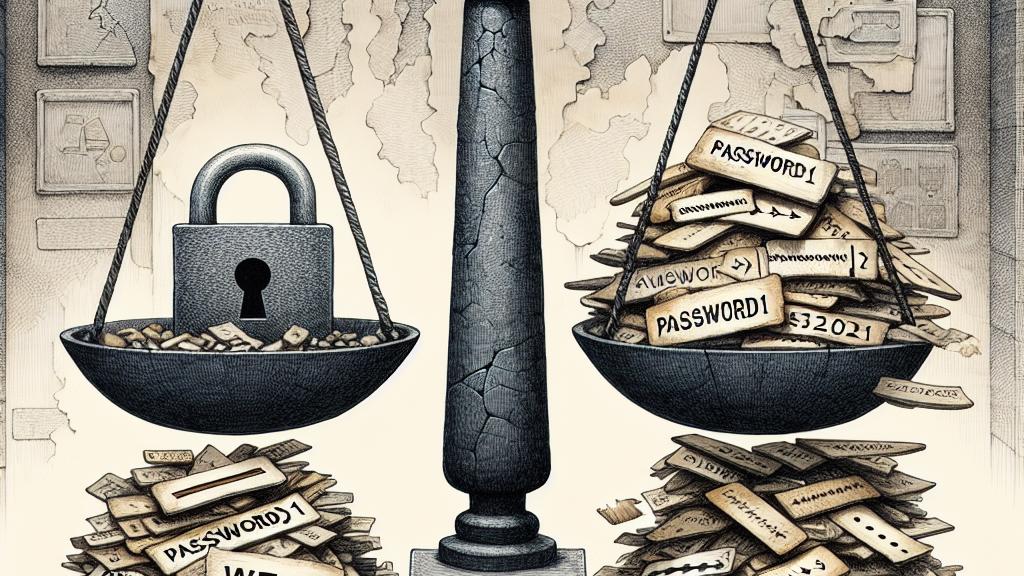Should the System Administrator Be Fired Over Password Expiration Notifications?
Overview
- An engaging look at the implications of mandatory password changes in organizations.
- Insight into outdated security measures and their unintended consequences on user behavior.
- A fresh review of innovative password policy practices to bolster security in modern workplaces.

The Password Policy Controversy in Japan
Recently, social media in Japan buzzed with discussions after a certain company prompted employees to change their passwords every 90 days. This led to a bold assertion from a user suggesting that the system administrator should be fired for clinging to such a dated practice. This incident underscores a crucial concern: policies that once seemed crucial may now do more harm than good. Take, for instance, the all-too-common scenario where employees, under constant pressure to modify their passwords frequently, resort to simple variations like 'Password1' or 'Summer2024,' which are easily guessable and far from secure. Such predictable choices can expose sensitive company data to potential breaches, significantly undermining the security framework.
Shifting Paradigms in Cybersecurity Best Practices
As the landscape of cybersecurity is transformed, experts are increasingly advocating for a departure from rigid password expiration policies. Instead of blanket mandates, there’s a push for a risk-based approach, which can be exponentially more effective. Imagine if, rather than forcing every employee to change their password quarterly, organizations could conduct targeted assessments to identify users who genuinely require enhanced security protocols. For example, introducing multifactor authentication can dramatically strengthen security. Consider the scenario where an employee needs to enter a code sent to their smartphone in addition to their password. This additional step can serve as a formidable barrier against unauthorized access. Furthermore, encouraging the adoption of long passphrases that blend personal significance with complexity—like 'ILoveBlueSky&Pineapples!'—can significantly enhance password strength while being memorable.
Revamping Password Policies for Modern Security Needs
Given the evolving nature of cyber threats, it's imperative for companies to create dynamic and user-friendly password policies. This isn't merely about enforcing rules; it's about fostering an environment where security becomes a shared responsibility. Implementing engaging educational sessions can empower employees to understand the importance of strong passwords and subscribe to best practices. For instance, organizations could leverage password management tools that automate the generation and secure storage of complex passwords. This would not only ease the burden on users but also enhance overall security architecture. Additionally, urging employees to utilize memorable yet unique phrases—perhaps inspired by their favorite movies—can help maintain security without adding stress. Ultimately, organizations must commit to upgrading their cybersecurity measures, aligning them with contemporary challenges and ensuring the protection of both their systems and valuable user data. Because in today's digital age, being proactive about security isn't just an option; it's a necessity.

Loading...